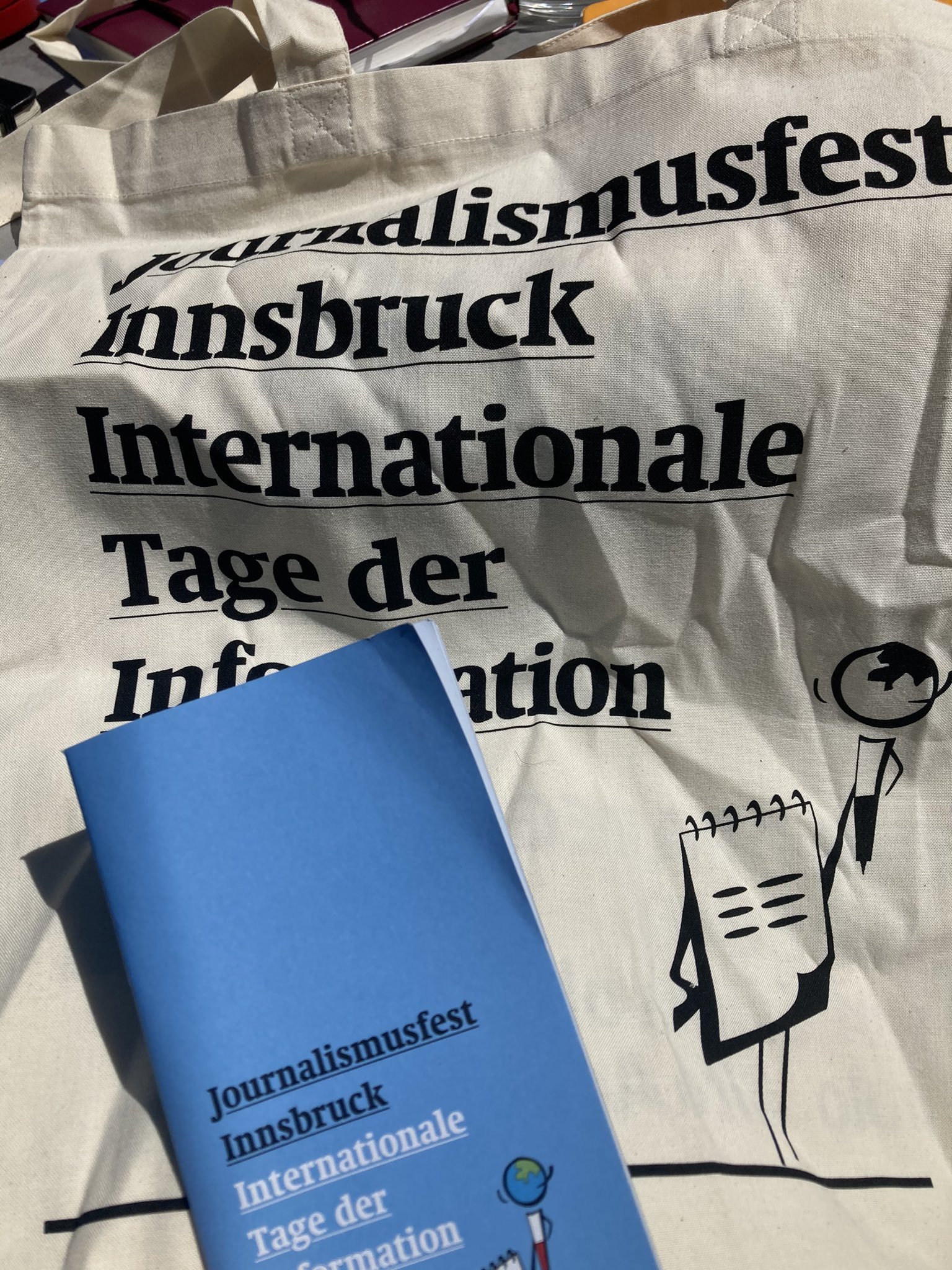Whistleblowing and SLAPPs take centre stage at inaugural Innsbruck Journalism Festival
Among sessions on Belarusian writers working in exile, Edward Snowden's flight from Hong Kong and the predicament of female journalists in Afghanistan, Blueprint for Free Speech staff participated in last weekend's Innsbruck Journalism Festival, the first event of its kind to be held in the Tyrolean capital.
More than 4000 people attended the Festival, which was partnered by major media organisations from Austria and Germany, including Austria's national broadcaster ORF and newspaper Der Standard, along with Germany's Suddeutsche Zeitung, Taz and Die Zeit.
Highlights of the event included a session with investigative journalists Frederik Obermaier and Bastian Obermayer of the Suddeutsche Zeitung, who were responsible for the most consequential news story in recent Austrian history, by bringing the Ibizagate video to public attention. The name of Julian Hessenthaler - the apparent source of that video, who was convicted of drugs offences in an Austrian court earlier this year - unsurprisingly came up several times during the festival.
Hessenthaler's was not the only case to be mentioned. In the festival's opening ceremony, historian and journalist Michael Sontheimer, who collaborated with WikiLeaks at Der Spiegel for many of their key publications, called out the blatant "double standard" underlying the prosecution of WikiLeaks Publisher Julian Assange.
Canadian human rights lawyer Robert Tibbo, who organised shelter and other assistance for Edward Snowden while he was in Hong Kong in 2013, emphasised the need for whistleblower protection and media attention to extend to those who give whistleblowers necessary support. It took years for several of the refugees who sheltered Snowden in Hong Kong to be granted asylum in Canada. Ajith Pushpakumara, originally from Sri Lanka, is still stranded there with limited ability to support himself.
Austria itself has a patchy record on whistleblower protection. Almost six months after the deadline to transpose the EU Whistleblower Directive, Austria still lacks any national-level legal protection for those who speak out in the public interest. Unlike countries like Germany and Spain - where progress has also been slow - Austria has yet to publish any draft legislation.
What is happening behind closed doors was one of the topics discussed in Friday's panel with Blueprint's Naomi Colvin and renowned Austrian media lawyer Maria Windhager, chaired by her colleague Rainer Schüller, Deputy Chief Editor at Der Standard. Though transposing the Directive is obligatory, member states still have key decisions to make about how expansive, and how strong, the law's provisions should be.
Windhager suggested that this internal debate was still ongoing within Austria's coalition government and that several departments were involved. Among the issues under discussion may be whether the scope of the law should be extended to encompass breaches of national as well as EU law - a key change recommended by the European Commission as well as civil society and accepted by legislators in France, Spain and Germany. Within the current OVP-Green coalition, the Greens are in favour of a stronger law and the OVP are more sceptical.
SLAPPs are also a growing problem in Austria, as they are elsewhere in Europe. Research conducted by the Coalition Against SLAPPs in Europe (CASE) suggests that groundless and abusive legal cases that are designed to chill public participation have increased fivefold since 2016. As the CASE figures do not record SLAPPs that do not continue past the threatening letter stage, the true extent of the problem is even larger.
Maria Windhager confirmed that Der Standard was seeing an ever increasing number of legal threats that seemed intended to stop reporting on controversial issues. As a major newspaper, Der Standard was in a position not to be cowed by these kinds of threats, but the position was very different for those without institutional support. A legal advice service for journalists has been set up by the Presseclub Concordia to ameliorate the impact of this.
Tackling SLAPPs is a multi-faced problem: in addition to legislation to stop the worst abuses of national legal systems, potential SLAPP targets need access to excellent advice that will allow them to exercise their democratic rights, freedom of expression among them. As a first step, the entire panel was agreed that dispelling the secrecy about SLAPPs is an essential prerequisite for challenging their chilling effect.


